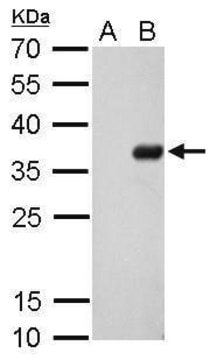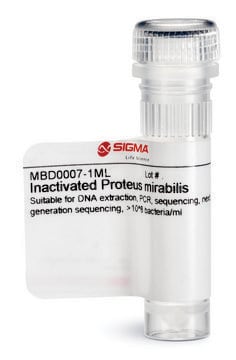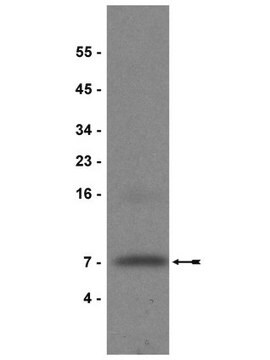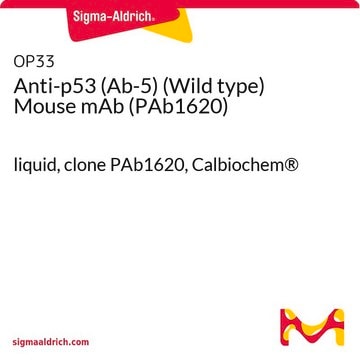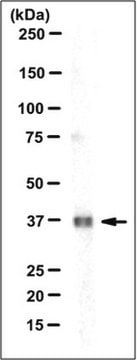SAB4200818
Anti- Proteus mirabilis antibody produced in rabbit
IgG fraction of antiserum
About This Item
Productos recomendados
biological source
rabbit
antibody form
IgG fraction of antiserum
clone
polyclonal
description
Research area: Microbiome
form
buffered aqueous solution
mol wt
~70 kDa
species reactivity
Proteus mirabilis
packaging
antibody small pack of 25 μL
concentration
~1 mg/mL
technique(s)
immunoblotting: 1:10,000-1:20,000 using Proteus mirabilis LPS
indirect ELISA: 1:16,000-1:32,000
shipped in
dry ice
storage temp.
−20°C
target post-translational modification
unmodified
Categorías relacionadas
General description
Immunogen
Application
Physical form
Other Notes
Disclaimer
Storage Class
10 - Combustible liquids
wgk_germany
WGK 1
flash_point_f
Not applicable
flash_point_c
Not applicable
Elija entre una de las versiones más recientes:
Certificados de análisis (COA)
¿No ve la versión correcta?
Si necesita una versión concreta, puede buscar un certificado específico por el número de lote.
¿Ya tiene este producto?
Encuentre la documentación para los productos que ha comprado recientemente en la Biblioteca de documentos.
Nuestro equipo de científicos tiene experiencia en todas las áreas de investigación: Ciencias de la vida, Ciencia de los materiales, Síntesis química, Cromatografía, Analítica y muchas otras.
Póngase en contacto con el Servicio técnico
